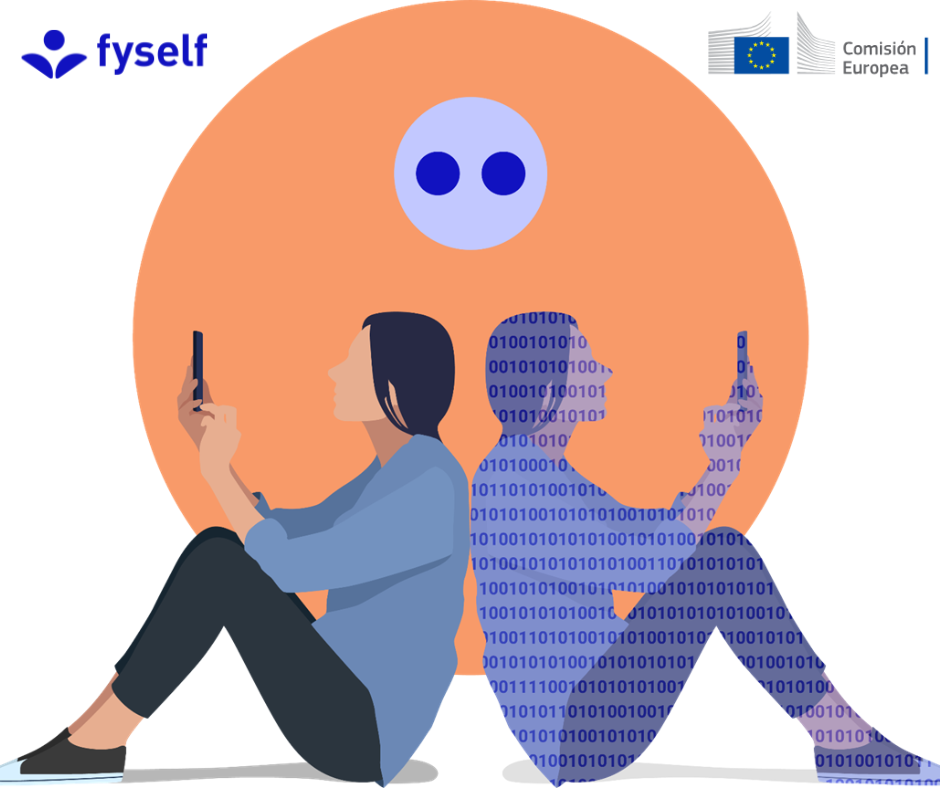Your data is valuable, but just how valuable?
In recent years, a new type of wealth is being handled, recognized by some as the fusel oil of modern society. This new merchandise is already a currency, and judging by how the Internet giants are doing, well … the business of personal data is profitable. In other words, your data is valuable.
Today we know that any information, apparently insignificant, represents an advantage for someone. From the color of the nails to our bank card numbers. But really, how much are personal data worth?
Approaches to analyze the value of personal data
There are many approaches to calculate just just how valuable your data is. Some start by comparing the number of users to the net income of giants such as Facebook or Google. For example, we could consider that the net income of the Menlo Park company was 18.48 billion in 2019. Then divide it by the 2.5 billion monthly active users for the same date. The result would be $ 7.4, which would be the value of the data of each person who has an active account on the network. But that approach is quite limited.
Factors such as the cost of storing that information and the price of data on the black market can also be taken into account. Didn’t you know there was a black market for data? Well, take good care of your Netflix or Amazon Prime account, as the demand for them is high in said market and at competitive prices.
There is another tendency that is calculated based on statistics from opinion polls, such as this one made by the Trendmicro website. Some questions asked to users in these surveys are:
- For how much would you sell your personal data?
- How much are you willing to pay to protect your personal data?
These pre-existing approaches do not converge to one point. This of course creates a great deal of uncertainty regarding the final value of personal data.
How much are your data worth? Variables to consider
Despite this, there are some aspects that we could use to stablish the final prize.
1. Privacy of information
The financial data of a person, say his bank account or his salary are more difficult to obtain on the Internet than others such as name or skin color.
The reason is that this kind of information is usually classified as sensitive. Therefore, the individual tends to need more security guarantees from the company or tool that requests them.
2. Variability of the information
Not all information has the same validity. Fashion depends on very variable tastes and collective trends, that could even be cyclical. However, the genetic characteristics of people don’t change.
This aspect has two points of view:
- The collection of an information field that varies constantly over time is more expensive.
- Market laws indicate that a cheap product that can be constantly monetized generates more income in the medium and long term than other more expensive ones.
3. Time investment of the intermediary
Data are collected by people. People who stop doing their daily activities to provide that information.
This time is often negligible. Providing the name, gender and date of birth usually takes no more than a minute. However, collecting all the grades from a student career would take us a day of research and documentation.
The longer the time, the more reluctance the owner of the data will have to dedicate himself to that task. You may simply prefer to spend those hours doing other activities that generate more income or entertainment.
4: Transparency on the use of data
In general, people are more willing to provide their data if they know the context in which it will be used.
If the destination of the information, in addition to being secure, implies direct benefits, it is very likely that they will provide the information without indecision.
For example, if all the academic information of a Master of Science takes a week to be collected, but it will help you to enroll in a scholarship, then the time invested will remarkably pay off.
5: Information validation.
The veracity of the information is an essential aspect in the value given to it. But this verification process represents an extra expense; therefore, the price of the data must be increased.
Think like an employer: If you need to hire another staff member, you must believe in the skills they put on their CV. But if they gave you the skill already with a verification guarantee, you’d assume that piece of information is worth more.
Owner of the datum
It is a somewhat painful reality, but the information which public personalities generate is more valuable than people with less impact on the media. Above all, for advertising.
This rule is very popular between athletes, artists and influencers of all kinds: on many occasions they generate more income from advertising contracts than from their own talent.
7. Nature of the information
Probability and statistics are sciences that detect patterns after the processing of considerable volumes of data.
The nature of the data or variables is a primary aspect in the study of these sciences. This nature determines the type of operations that can be carried out regarding this variable.
For example, the age of a person is a quantifiable data on which you can compare, order, and even add two people.
However, gender only allows comparing two people to say whether or not they are of the same gender.
These operational limitations can be essential to improve the accuracy and veracity of certain analyzes.
8. Information gathering methods
Today the Internet is full of all kinds of information: videos, photos, images, text and calculation documents, executable files for each of the operating systems, among many other formats.
Sharing a photo or software is relatively easy. But there is another type of data, the management of which requires special attachments or more complex collecting processes. Among them are biometric, psychological, and vital signs such as heart rate or blood pressure.
9. Size of the sample that includes the data
The larger the set of data that make up a sample, and more representative of the total population, the more valuable that data will be in any context where its processing and use is necessary.
It is easy to understand that a larger amount of analogous data requires more computing power for its processing. Therefore, that field becomes more expensive. That influences how much your data are worth.
10. Context existing around the individual
In a given context, whether of crisis or collective euphoria, the perception of the value of things can change dramatically.
For example, with the recent spread of COVID19 as a global pandemic, several economies have been deeply affected. People without jobs or solvency today not necessarily have the same perception of life than they did before the virus.
Data as a whole is worth more than individually
In this post some of the aspects to take into account to evaluate the value of personal data were listed. Without a doubt there can be more. The business world is too heterogeneous so setting a fixed price for a product is not a good idea.
Another thing that we must take into account is that the information of a single person will be very difficult to exceed in value the information of a million. The main buyers of personal data do not need to know about a specific individual. What they actually want is to know about about millions. This way they will be able to adapt products or services to the purchase intention of a large group of people.
Here comes another important conclusion about the value of personal information: an estimated price that comes out as a result of this analysis should never be judged before multiplying it by a hundred thousand or a million. The companies that pay the most for personal information today do not want the data of a person: they want the data of all the inhabitants of a city. Therefore, they must pay the same value to each of the fellow citizens, to give an example.
For this reason, it is more credible to read studies that yield small prices for each of my data: name, age or profession. Since these prices, when taken to large scales, give reasonable amounts to be paid by companies.
Thinking in numbers
Thinking in numbers: A person can easily generate about 300 data around himself. And do not think it is exaggerated. Have you thought about how much data can only come out of your body? That is not counting other data you have accumulated during your whole life. Think about your medical history, the films you have seen or simply your academic training broken down into subjects. Every thought in your mind can be treated as a datum, regardless of whether it is scientific analysis or aesthetic triviality.
Suppose that the data set on an individual is worth 200 euros. To obtain all the information of ten thousand people it would be necessary to pay 2 million euros. For this reason, a company focuses on only that field of information that interests them within a segmented group of people.
Is there a data market?
In the law of the market there are things that are worth more than the quality of the product. The data market already exists, but it hasn’t revealed its numbers beyond the revenue of the big companies that turned information into products in the first place. It is a market in which you are a product unable to get out, you can’t even know or control your destiny.
One of the objectives of FySelf is to publicize the value of personal data and empower its legitimate owners, the people who provide it today for free: us. Expect other articles like this one that explain how the new information-based business model will work, the first where the user will be a provider and at the same time the beneficiary of the value of personal data.
Imagine what would happen if your data were actions within one of the Internet giants. FySelf wants to make this happen.
Artículos relacionados


